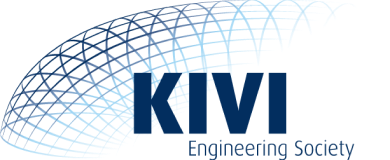
Fairness in Modelling
Omschrijving
In this presentation the overlapping design consensus is proposed as a method based on fairness for making decisions on the construction of models and the involved value choices. The ways in which values (and norms) do and should influence models have been a topic in operations research (cf. e.g. Le Menestrel & Van Wassenhove, 2009; Wallace, 1994) as well as in more theoretical disciplines, such as philosophy of science (Steel, 2010). While it is commonly accepted that values do influence models, the discussion on which values and norms should influence them is still going on (Diekmann & Peterson, 2011; Douglas, 2000; Walker, 2009). So far, the debate focusses on generic types of models, such as models in science, models in engineering, or models for decision-support. The debate has however paid less attention to how one should choose values and norms for a specific model in a specific case. Furthermore, when building models, it is unclear who has legitimate authority to decide whether a model sufficiently addresses all problematic aspects: is it the modelers, the problem-owners, or the stakeholders? The overlapping design consensus settles these questions.
The overlapping design consensus is a mutual agreement among all stakeholders that provides honest and impartial concern for all relevant interests. The overlapping design consensus is based on Rawls’ overlapping consensus (Rawls, 2001). Similarly to Rawls’ overlapping consensus, stakeholders of an overlapping design consensus affirm two views: First, they mutually agree on the functional and normative features of a design. Second, they affirm non-collective justifications for desiring those design features. For the overlapping design consensus, I presume that all stakeholders have the two moral powers necessary to engage in social cooperation, that they can exercise the two moral powers, and that they are sources of valid claims about conceptions of good modeling.
The overlapping design consensus has a different approach to modeling than the traditional view.
Traditionally, models are perceived as epistemic tools for interrogating problems, following a scientific method. However, often modeling should take into account the interests of stakeholders. In those cases, traditional modeling approaches run the risk to become one-sided by overemphasizing the interests of a specific group – often the problem-owner (Rosenhead, 1994). When emphasizing fairness, modelers can minimalize this risk. Fairness is respected if all stakeholders’ interests are acknowledged honestly and impartially. In addition, fairness seeks the justification for modeling decisions and model construction neither in scientific, professional, nor objective standards, but in the mutual agreement of all stakeholders. I will explain why this issue is not as problematic as it sounds. Rather, the overlapping design consensus allows unifying ethical, epistemic, and professional standards in modeling.
Reference
Diekmann, S., & Peterson, M. (2011). The Role of Non-Epistemic Values in Engineering Models.
Science and Engineering Ethics. doi:10.1007/s11948-011-9300-4
Spreker(s)
Sven Diekmann (TU/e) is a PhD student who started his research project the Ethics of Modeling in September 2009. In August 2009, he graduated at the University of Bremen in mathematics about variance amplification in supply chain models. In his current research project, he discusses morally relevant influences on models and their results, such as subjective influences of modelers, moral principles of good modeling practice, and the roles of values in modeling.
Locatie
Vergadercentrum, Vredenburg 19
Utrecht
Organisator
Filosofie & Techniek
Naam en contactgegevens voor informatie
Nadere informatie bij drs.ing. Henk Uijttenhout (vz), tel.: 070 - 3875293 / 06 - 42505844 of via onderstaand e-mailadres.
